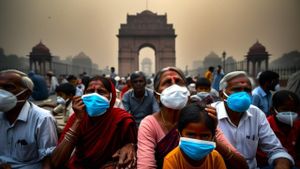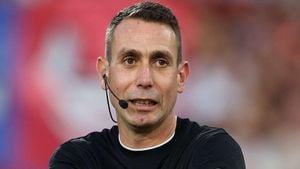What’s Up With Trump’s Criminal Cases Now That He’s Been Reelected?
For much of his campaign to return to the White House, President-elect Donald Trump was facing four separate criminal prosecutions. Now, following his reelection, prosecutors have decided to drop two of his federal cases, leaving the remaining state cases teetering on the edge.
Trump’s legal battles took center stage with the New York hush-money case. Back in May, he made history as the first former U.S. president to be convicted of crimes, receiving 34 felony counts for falsifying business records. This case, filed by the Manhattan District Attorney Alvin Bragg, revolved around Trump allegedly making fraudulent moves to conceal a $130,000 payment to adult film actress Stormy Daniels before the 2016 election. This payment was purportedly to keep Daniels quiet about a ten-year-old sexual encounter with Trump.
Although these crimes could technically carry up to four years of prison time, many experts speculated he would likely receive less severe punishment, possibly just probation. Following his successful reelection, Trump's legal team, led by Todd Blanche and Emil Bove, argued for dismissal based on the potential constitutional hurdles this could raise for him as the president.
They assert the Constitution’s Supremacy Clause, which prevents states from impeding the federal government, is at play. “You can’t have a commander-in-chief, the most powerful person in the world, sitting in state prison,” explained Jon Sale, former federal prosecutor and special counsel from the Watergate era.
Even before Trump was elected, the judge overseeing the case, Justice Juan Merchan, was already mulling over Trump's request to dismiss the verdict. He argued the U.S. Supreme Court's July ruling granting immunity to former presidents for certain official actions would affect his trial. Nevertheless, the attorneys opposing Trump have maintained they are prepared to contest any motions for dismissal, showing they are not backing down easily.
On the side of federal issues, things weren't any less chaotic. The U.S. Justice Department charged Trump with conspiracy and inciting the January 6 riot at the Capitol. This was all set to be examined more closely under Special Counsel Jack Smith's office. Yet, this effort was marred by delays and complications made worse due to the Supreme Court's ruling on presidential immunity, which now complicates the timeline and the approach prosecutors can take against Trump.
Things took another turn when Trump’s classified documents case emerged, where he faced accusations of hoarding national security documents post-presidency and obstructing efforts to retrieve them. Earlier this year, the case was dismissed on the grounds of unclear authority for the Special Counsel, leading to yet another delay as Smith's office wound down this case, just like many before it.
Meanwhile, the Georgia election case filed by District Attorney Fani Willis could face significant challenges as well. This case accused Trump of conspiring with supporters to overturn his 2020 loss. Trump's legal team has cited potential bias and has made moves to push for dismissal, reinforcing their claim with issues surrounding his reelection.
Now, as Trump navigates these turbulent waters, should he continue onward as president, his legal team appears determined to challenge the state prosecutions as well, blurring the lines of jurisdiction and authority within the legal framework.
Special Counsel Jack Smith's dismissals prompted discussions about the reach of the law when it involves the presidency. The Supreme Court’s ruling bolstering executive immunity adds to the complex layers of his cases. Although Trump’s cases were dismissed ‘without prejudice,’ which means they could potentially be reopened, the machinations of the law make this scenario uncertain and laden with ‘what if’ questions.
Adding to this tension, Trump's recent victory against federal cases raises eyebrows about the implications: Is the rule of law functioning as intended if presidents cannot be held accountable?
These questions linger as Trump begins yet another chapter, underscoring the precarious balance between accountability and power at the highest levels of government.



